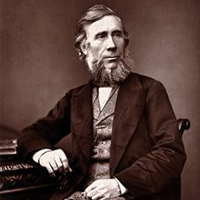Get Involved
- Optica on Ukraine
- Awards & Honors
- Diversity, Equity & Inclu...
- Early Career Professional...
- Education Outreach
- Global Policy & Affairs
- Local Section
- Virtual Engagement
- Students
-
Technical Groups
- Bio-Medical Optics
- Fabrication, Design and Instrumentation
- Information Acquisition, Processing and Display
- Optical Interaction Science
- Photonics and Opto-Electronics
- Vision and Color
- Technical Group Leadership Volunteers
- Technical Group Webinars
- Technical Group Events
- Technical Group Search
- Technical Group Prizes
- Volunteer
- Optica on Ukraine
- Awards & Honors
- Diversity, Equity & Inclusion
- Early Career Professionals
- Education Outreach
- Global Policy & Affairs
- Local Section
- Virtual Engagement
- Students
-
Technical Groups
- Bio-Medical Optics
- Fabrication, Design and Instrumentation
- Information Acquisition, Processing and Display
- Optical Interaction Science
- Photonics and Opto-Electronics
- Vision and Color
- Technical Group Leadership Volunteers
- Technical Group Webinars
- Technical Group Events
- Technical Group Search
- Technical Group Prizes
- Volunteer
John Tyndall Award
The award was established in 1987, with IEEE Photonics Society, to honor the memory of John Tyndall who made distinguished contributions to physics, particularly his demonstration of total internal reflection in a continuous stream of water.
Society Connection
While John Tyndall’s work pre-dates the founding of the Society, his research on fundamental physical phenomena such as light, heat, sound and magnetism were critical to the field.
Key Funder
Corning, Incorporated
About John Tyndall
 Tyndall was born on 2 August 1820, at Leighlin Bridge, near Carlow, Ireland, where his father was a constable. After a little formal schooling, he gained a practical education by working as a surveyor and engineer. He entered the University of Marburg, Germany, in 1848 and earned his doctorate two years later. His dissertation research interested Michael Faraday, who later brought him to the Royal Institution of London. In 1867 Tyndall succeeded Faraday as superintendent there. He retired in 1887.
Tyndall was born on 2 August 1820, at Leighlin Bridge, near Carlow, Ireland, where his father was a constable. After a little formal schooling, he gained a practical education by working as a surveyor and engineer. He entered the University of Marburg, Germany, in 1848 and earned his doctorate two years later. His dissertation research interested Michael Faraday, who later brought him to the Royal Institution of London. In 1867 Tyndall succeeded Faraday as superintendent there. He retired in 1887.
In 1869 he provided explanations for the color of the sun at the horizon and of clear skies; about two years later Lord Rayleigh provided the relevant theory. Tyndall showed that if broth was placed in air which was without scattering particles, the usual life forms did not develop. This work helped invalidate the "spontaneous generation" theory of life.
Among his most important discoveries were the vast differences in the abilities of "perfectly colorless and invisible gases and vapors" to absorb and transmit radiant heat. He noted that oxygen, nitrogen, and hydrogen are almost transparent to radiant heat while other gases are quite opaque. He received the 1869 Rumford Medal for this work.
While doing consulting work on the best technology for lighthouses and foghorns, Tyndall began studying sound phenomena. This resulted in his book On Sound (1867), written "to render the science of acoustics interesting to all intelligent persons including those who do not possess any special scientific culture." He wrote 15 other popular books.
Tyndall was an excellent educator and demonstrator, popularizing science among laypeople. In the 1870s, he toured the United States delivering public lectures which drew packed houses.
He was an expert mountain climber, and in 1861 made the first ascent of the Weisshorn. He died at his home near Haslemere on 4 December 1893.
